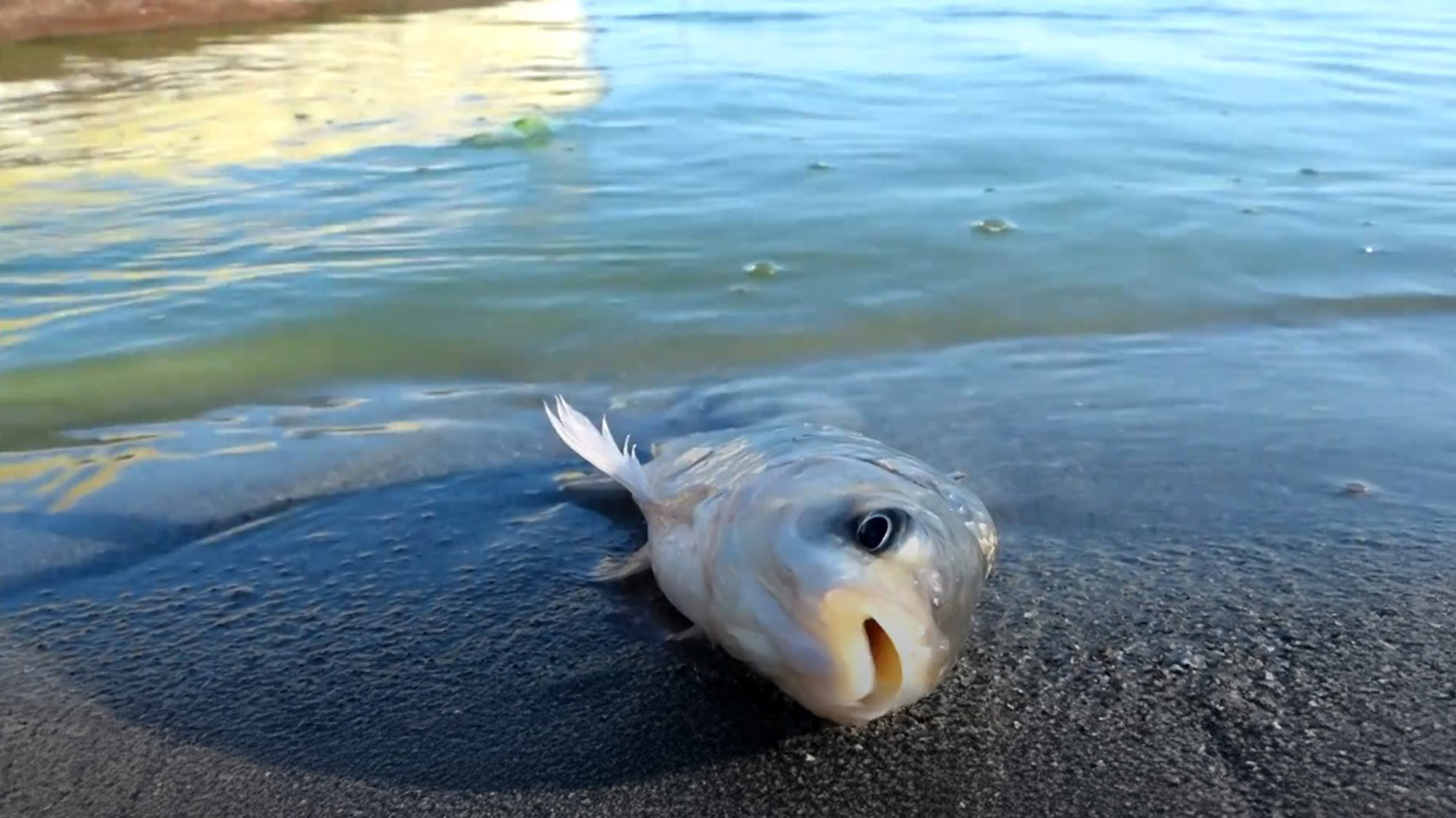Lake Razzaza on the Brink of Extinction: Iraq Faces a Looming Environmental Catastrophe
Lake Razzaza, one of Iraq's largest inland water bodies, is nearing total desiccation due to water scarcity and state neglect, devastating local communities and signaling a broader environmental crisis.

ERBIL (Kurdistan24) – One of Iraq’s most vital inland water bodies, Lake Razzaza in Karbala Province, is nearing total desiccation, triggering deep environmental and economic alarm across the country. Once a shimmering natural reservoir that sustained surrounding communities and attracted visitors from across Iraq, the lake now stands as a stark image of neglect, dwindling resources, and the urgent need for long-term water management.
The environmental collapse has not only reshaped the landscape but also the lives of hundreds of families who depended on Lake Razzaza’s waters for fishing and tourism. “I had seen pictures of the lake on social media — beautiful skies, clear waters, families enjoying the view,” said a visitor from Najaf, speaking to Kurdistan24. “So I came here to see it myself. But what I found was shocking — garbage scattered everywhere, the water almost gone, and even the road to reach the lake damaged our cars because of its terrible condition.”
Local fishermen, once reliant on the lake’s thriving ecosystem, now face despair. “In the past, fish were abundant, of every kind,” said one fisherman, pointing toward the cracked shoreline. “But look at the water level now — it’s dropped so much. The government doesn’t visit, and there’s absolutely no care for this place anymore.”
The drying of Razzaza has dismantled local economies built on fishing, tourism, and small-scale trade. What was once a destination for leisure and livelihood has now become a barren expanse, leaving residents with little to depend on.
The Directorate of Water Resources in Karbala attributed the sharp decline in Razzaza’s water levels to reduced inflows and the scarcity of seasonal runoff, stressing that only comprehensive and sustainable planning can prevent irreversible loss. “The drop in the lake’s level is due to the lack of water releases and the general shortage we are facing,” said Abdul Amir al-Kharsan, Director of Water Affairs in Karbala, in an exclusive statement to Kurdistan24.
“The last major water release into Lake Razzaza was one billion cubic meters in 2018, when its volume rose to 23.5 billion cubic meters,” al-Kharsan explained. “Today, it has fallen below 20.5 billion cubic meters, and for more than 30 years, the average has remained nearly stagnant. Without new releases and strategic measures, the lake faces total depletion.”
The alarming decline has once again thrust Iraq’s water management policies into the spotlight, raising fundamental questions about the future of environmental and food security. Experts warn that continued drought and poor allocation could have devastating effects not only on local communities but on the entire national ecosystem.
On Friday, Kurdistan Regional Government’s (KRG) Ministry of Agriculture and Water Resources has showcased significant achievements under the ninth cabinet, offering an example of strategic investment in water resilience.
Minister Begard Talabani announced that eight dams have been completed across the Kurdistan Region, with a combined storage capacity exceeding 160 million cubic meters. “Ensuring water security has been our ministry’s core mission under the ninth cabinet,” she said. “We are pleased to confirm that eight dams have been fully completed, and twelve more are under construction, while negotiations with Baghdad continue on four major reservoirs—Bakrman, Mandawa, Dalga, and Taqtaq—that are expected to serve as Iraq’s future water reserves.”
Talabani further noted the construction of 23 artificial lakes, with 58 additional ones in active progress, emphasizing that these projects not only protect agriculture and fisheries but also promote tourism, rural development, and long-term economic stability. “Our projects are designed to safeguard against drought, support farmers, and ensure a sustainable balance between human and environmental needs,” she affirmed.
She also highlighted the cabinet’s efforts to modernize urban water systems, including the Emergency Rapid Water Project in Erbil, which will end three decades of shortages in the capital, and the ongoing third line of the Dukan–Sulaimani water project, set to secure the city’s needs for the next 25 years.
Observers say that the image of Lake Razzaza drying in silence stands as a warning of what could come if Iraq’s broader water infrastructure continues to deteriorate, they note that the tragedy unfolding in Karbala is not just the story of a vanishing lake—it is the story of a nation’s vulnerability to climate change, neglect, and decades of uncoordinated water management.
